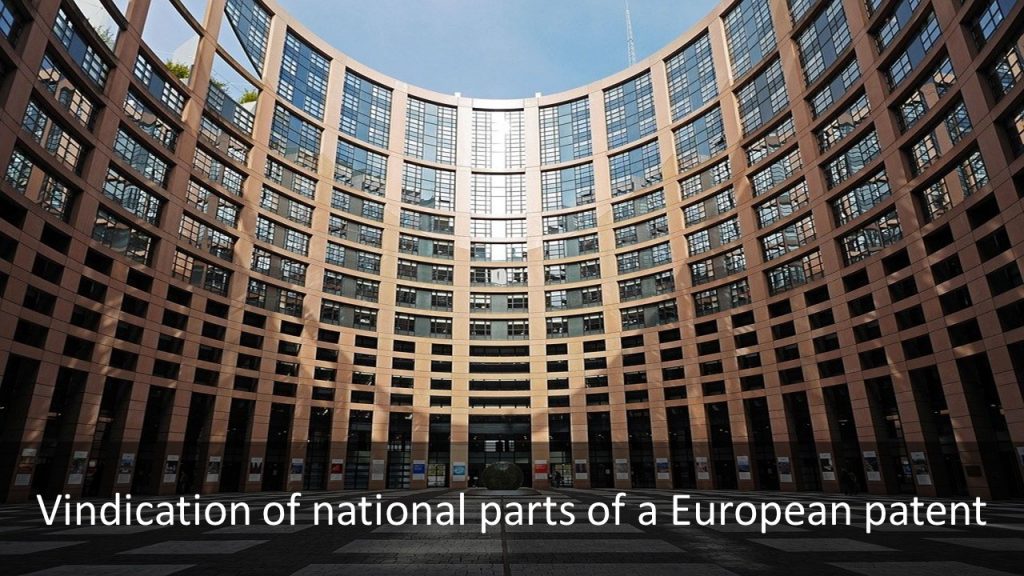The right derived from a European patent including an Employee’s innovation is governed by Article 60 EPC. Also, the German OLG Frankfurt has held that this applies as a standard for the vindication of a European bundle patent, i.e. for claiming the transfer of fraudulently filed European patent rights. Furthermore, an upper signature rather than a signature is insufficient to claim an employee’s idea!
The legal standard for Employee’s inventions
The German Employee’s Invention Act is the legal standard in Germany for service inventions. The facts of an Employee’s invention are also taken into account under European patent law; the relevant legal wording can be found in 60(1) EPC, which regulates the entitlement to a European patent in regard to an inventor (in short, it is governed by the law of the state in which the employee is predominantly employed).
Thus, the criteria for the right to an Employee’s innovation under a European patent is established – but does this also apply as the standard for vindication? In a case involving films and nonwovens for the construction sector, the Frankfurt Higher District Court (Oberlandesgericht (OLG) was presented with this.
Vindication
Vindication is a general legal word that refers to a situation in patent law in which an invention has been improperly applied for by a non-eligible individual. According to Section 8 of the German Patent Act, an inventor can demand that the non-entitled person transfers to him the authority to award the patent or demand that the patent is transferred to him.
It should be emphasized that the demand for transfer of the property right from a vindication must be asserted through legal action within two years of the patent’s award. In addition, if an opposition for wrongful taking has been lodged, the action for vindication may still be launched within one year after the opposition proceedings’ final conclusion.
Point of dispute: effective claiming of the Employee’s invention
The case before the OLG Frankfurt concerned the European patent “Plastic bag with overpressure vent,” for which an international PCT application was also pending, with priority claimed from the European patent. The parties disagreed on whether the defendant’s employer had established a genuine unrestricted claim to the Employee’s invention. The inventor and plaintiff filed a vindication claim and sought that the patent rights be transferred.
For years, the case has been conducted through several instances, in the course of which the plaintiff’s inventorship was also called into question. However, the Federal Supreme Court (BGH) has clarified the question of inventorship in the appeal ruling: the plaintiff is a co-inventor of the invention (BGH 2013, X ZR 103/11).
European patent and vindication
The European Patent Convention (EPC) registers and governs European Patent Office (EPO) patents in the European Union. Contrary to what the name implies, the EPC contains members other than EU member states, with a total of 38 contracting states. Under the Paris Convention for the Protection of Industrial Property, these contracting governments establish a special organization (Paris Convention). The European patent works similarly to a bundle of national patents from the contracting states desired by the applicant, which is why it is also known as a bundle patent.
In the case of the current service invention, the inventor and plaintiff felt himself to be the legal owner of the patent rights. Finally, the problem was a lack of signatures from both parties. In this regard, the OLG Frankfurt decided that an invention disclosure under 5 (1) ArbnErfG old (disclosure of the service innovation in a separate written form) can be effective even if a co-signature inventor is missing – if the disclosure is also submitted on behalf of the co-inventors.
On the other hand, it does not meet the requirements of § 6 (2) ArbnErfG to claim an employee’s invention, the OLG ruled, if there is no signature but an “upper signature” and therefore the claim ordered under it cannot be allocated with sufficient certainty.
Vindication of national parts of a bundle patent
The OLG Frankfurt ruled that the plaintiff had rightly asserted the vindication claim and that the vindication claim was well-founded under Art. 60 (1), second sentence, EPC in conjunction with Art. 2, § 5 (1), second sentence, IntPatÜG. Art. 2, § 5 (1), second sentence, IntPatÜG, in respect of the vindication of all national parts of the bundle patent which are still in dispute.
Claim for compensation for the maintenance of the IP right
In the judgment of the OLG Frankfurt, however, the employer was entitled to remuneration for the maintenance of the IP right. The defendant could challenge the vindication of the national parts of a bundle patent using the right of retention under 1000 of the German Civil Code (Bürgerliches Gesetzbuch – BGB), the OLG Frankfurt ruled, because he was entitled to compensation for the costs incurred in maintaining the IP rights.
Source: OLG Frankfurt: Vindication, 6 U 108/10
You can see a list of EU IP firms here.

